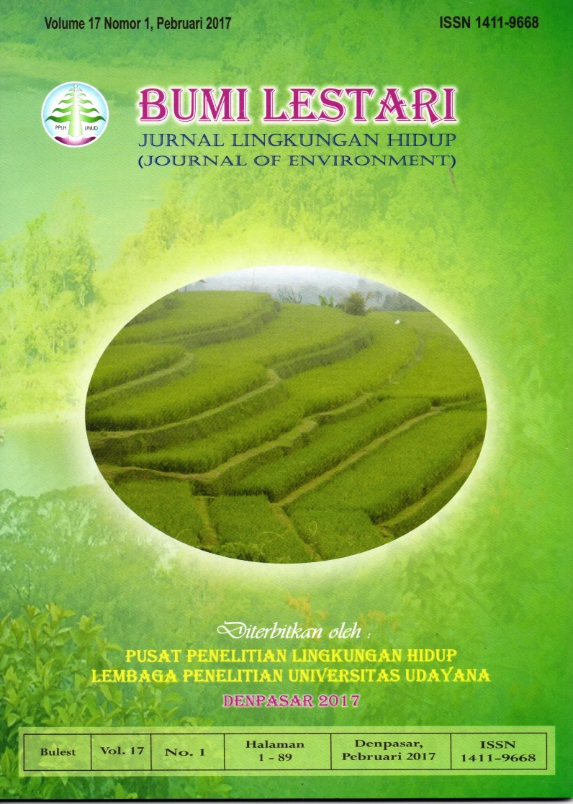PEMANFAATAN LIMBAH PADAT KOMPOS KOTORAN TERNAK DALAM MENINGKATKAN DAYA DUKUNG LINGKUNGAN DAN BIOMASA TANAMAN KACANG HIJAU (Vigna radiate L.) VARIETAS VIMA 1
Abstract
Animal sluge may a positively impact to environment if it utilize properly as organic fertilizer. Main aims of research was to determine effect of solid composted animal sludge to improve environmental capability and biomass of mung bean. The research had been conducted from June to August 2016. The research was designed to Split Plot Design in which main variable were A=composted chicken manure, B=composted cow manure, C=composted of slurry, sub variable were D0=no fertilizer, D1=15t/ha of fertilizer, D2= 30 t/ha of fertilizer, D3= 45 t/ha of fertilizer. All data were analyzed by analysis of variant thereafter by using Duncan Multiple Range test at 5% level. Result of the research showed that a treatment of composted of slurry interacted by dosage of 45 t/ha effect significantly to physical characteristic of Vertisol (bulk density), chemical characteristic of Versitol (bH, P, K, C organic), number of colonies bacteria,yield ofmung bean (1,17 t/ha), and water use efficiency (9,85 kg/ltr).
Downloads
Authors who publish with this journal agree to the following terms:
- All articles published by Bumi Lestari Journal of Environment and Environmental Reseach Center Udayana University are made available under an open access license worldwide immediately. This means everyone has free and unlimited access to the full-text of all articles published in Bumi Lestari Journal of Environment, and everyone is free to re-use the published material given proper accreditation/citation of the original publication. Open access publication is supported by authors' institutes or research funding agency by payment of a comparatively article processing charge for accepted articles (See Author Fees). Bumi Lestari Journal of Environment and Environmental Reseach Center Udayana University publish articles under the Creative Commons Attribution License.
- Authors are able to enter into separate, additional contractual arrangements for the non-exclusive distribution of the journal's published version of the work (e.g., post it to an institutional repository or publish it in a book), with an acknowledgement of its initial publication in this journal.
- Authors are permitted and encouraged to post their work online (e.g., in institutional repositories or on their website) prior to and during the submission process, as it can lead to productive exchanges, as well as earlier and greater citation of published work (See The Effect of Open Access).





